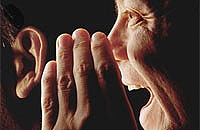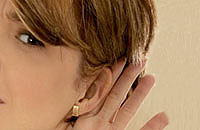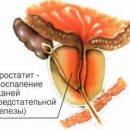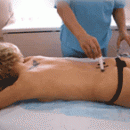The source of noise is any process that causes a local change in pressure or mechanical oscillations in solid, liquid or gaseous media. What will happen to us in noisy work?
Content
 Noise – disorderly combination of various strength and frequency of sounds; able to adversely affect the body. In recent years, due to the significant development of urban transport, the intensity of noise has increased and in everyday life, therefore, as an unfavorable factor, he acquired a great social valueNie.
Noise – disorderly combination of various strength and frequency of sounds; able to adversely affect the body. In recent years, due to the significant development of urban transport, the intensity of noise has increased and in everyday life, therefore, as an unfavorable factor, he acquired a great social valueNie.
The prolonged effect of intensive noise (above 80 dB) by human hearing leads to its partial or complete loss. Depending on the duration and intensity of the effects of noise, there is a greater or less reduction in the sensitivity of the hearing organs, which disappears after the exposure to noise, and with high duration and (or) the intensity of noise occurs irreversible hearing loss (hearing loss), characterized by a constant change in the threshold of hearing.
Distinguish the next hearing loss degrees:
- I degree (Easy reduction of hearing) – Hearing loss in the field of speech frequencies is 10 - 20 dB, at a frequency of 4000 Hz – 20 - 60 dB;
- II degree (moderate hearing decline) – Hearing loss in the field of speech frequencies is 21 - 30 dB, at a frequency of 4000 Hz – 20 - 65 dB;
- III degree (significant reduction in hearing) – Hearing loss in the field of speech frequencies is 31 dB and more, at a frequency of 4000 Hz – 20 - 78 dB.
Noise ruffles not only hearing
The effect of noise on the human body is not limited to the impact on the hearing body. Through the hearing nerves fibers, the noise irritation is transmitted to the central nervous system, and through it affects the internal organs, leading to significant changes in the functional state of the body, affects the mental state of a person, causing anxiety and irritation. A person exposed to intensive (more than 80 dB) noise spends on average by 10 – 20% more physical and neuropsychic efforts to keep the rhythm of work achieved by them at the sound level below 70 dB (a). The most pronounced is a disturbance of peripheral blood circulation due to the narrowing of the capillaries of the skin and mucous membranes, as well as an increase in blood pressure (at sound levels above 85 dBA).
With impulse and irregular noise, the degree of impact of noise rises.
What is «Noise disease»
Currently «Noise disease» Characterized by a complex of symptoms:
- reduction of hearing sensitivity;
- changing the function of digestion expressed in lowering acidity;
- Cardiovascular failure;
- Disorders of nervous and endocrine systems.
 Ultrasound (over 20,000 Hz) are the cause of hearing damage, although the human ear does not respond to them. Powerful ultrasound acts on the nerve cells of the brain and spinal cord, causes burning in the outer hearing aisle and the feeling of nausea.
Ultrasound (over 20,000 Hz) are the cause of hearing damage, although the human ear does not respond to them. Powerful ultrasound acts on the nerve cells of the brain and spinal cord, causes burning in the outer hearing aisle and the feeling of nausea.
No less dangerous are infrasonic effects of acoustic oscillations (less than 20 Hz). With sufficient intensity, infrasounds can affect the vestibular apparatus, reducing auditory susceptibility and increasing fatigue and irritability, and lead to a violation of coordination. Infrachast vibrations with a frequency of 7 Hz play a special role. As a result of their coincidence with its own frequency of alpha - the rhythm of the brain, not only irregularities of hearing are observed, but also internal bleeding may occur.
A special place in the pathology of the hearing body is occupied by the defeats due to the impact of super-test noise and sounds. Their short-term action can cause the complete death of the spiral organ and breaking the eardrum, accompanied by a sense of congestion and harsh pain in the ears. The outcome of the barotrauma is often a complete loss of hearing. In production conditions, such cases are extremely rare, mainly in emergency situations or explosions.
If you have noticed a headache, a feeling of gravity and noise in the head, arising by the end of the working shift or after work, dizziness when changing the position of the body, increased irritability, fast fatigue, reduced laborabilities, attention, increased sweating, especially when excitement, breaking the rhythm of sleep (drowsiness in the afternoon, anxious sleep at night) - it's time to seek about noise disease.









